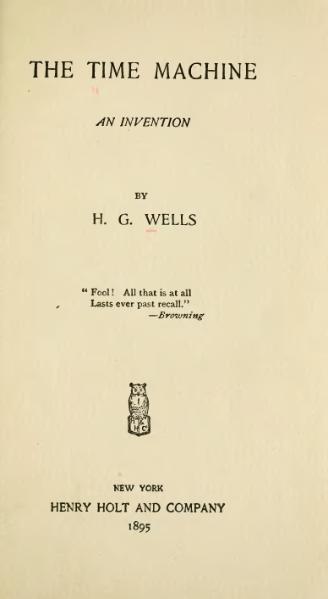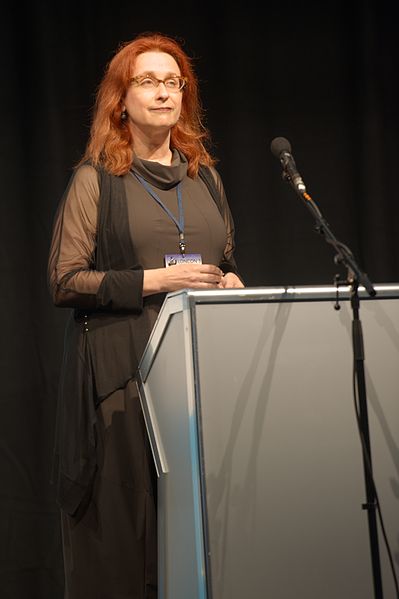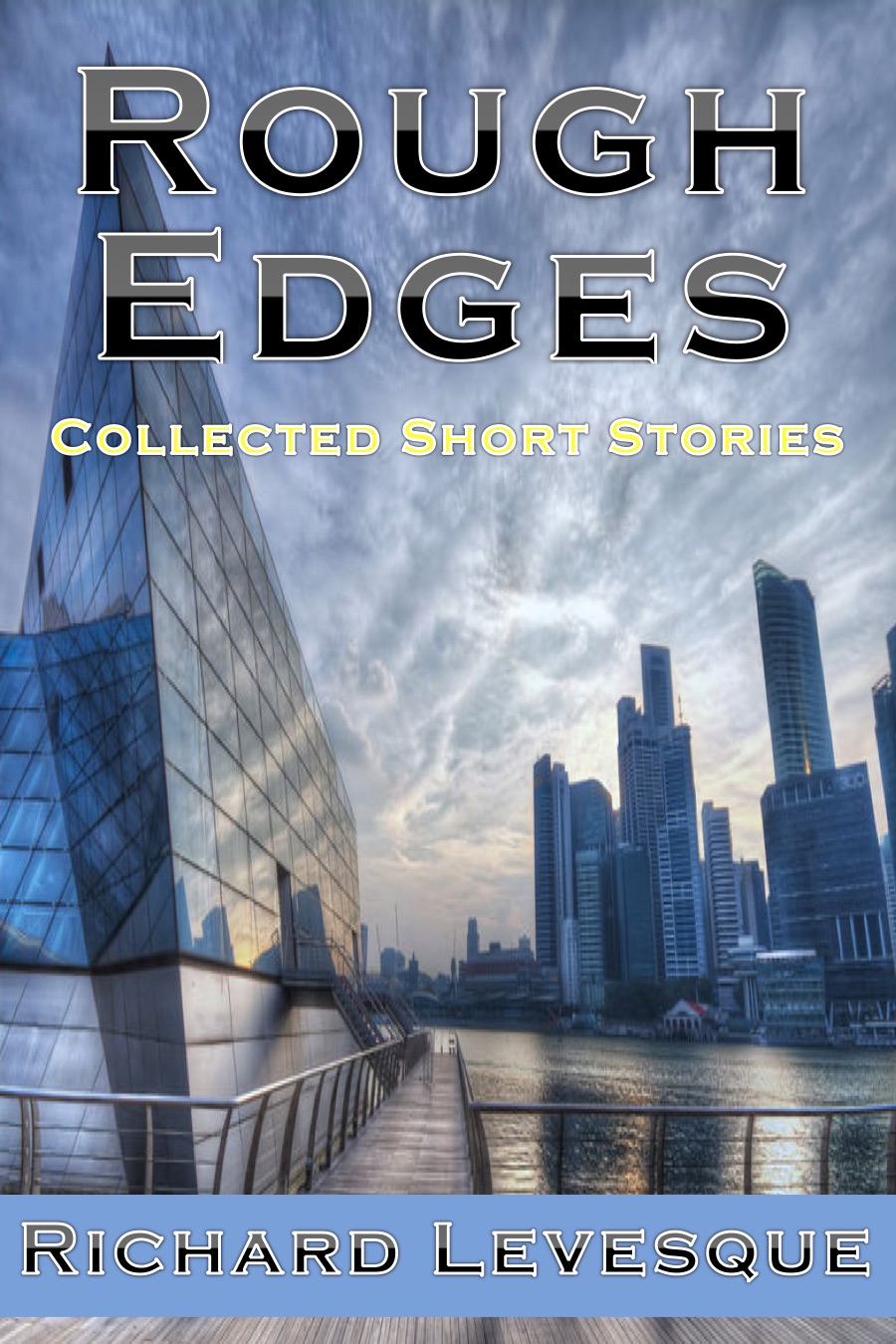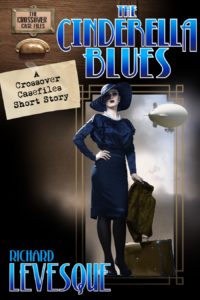The Time Traveler’s Wife–A Review
I recently listened to the audio version of Audrey Niffenegger’s The Time Traveler’s Wife. The book was on my radar for a long time: some of my own readers saw parallels between Niffenegger’s handling of a relationship interrupted by time travel and my own Take Back Tomorrow
, so I kept hearing about the book, but I guess what sold me on picking it up was hearing that Neil Gaiman (one of my favorites) was doing an event with Niffenegger. I mean, if Gaiman thinks she’s okay, then maybe the book’s worth a shot, right? So, when I was at the library looking for my next audiobook, there was The Time Traveler’s Wife in the N section, and I went for it.
My response upon finishing it is mixed. The book has a lot going for it, and I think Niffenegger managed to pull off something pretty important, but there were some down sides to the experience as well.
First, let me say that the audio production was solid; the use of two narrators, one for sections from Henry’s perspective and another for Clare’s, made the listening experience interesting and entertaining.
From the plot standpoint, though, I have to say my feelings are rather bifurcated. Briefly, it’s the story of Henry, who is a “chronologically displaced person,” and Clare, the woman he loves. In one timeline, they meet in their twenties and fall in love, but Henry’s condition causes him to slip into various times and places (more on that in a minute), so he ends up actually meeting Clare when she’s a little girl. He also meets himself as a boy and a teenager and encounters himself at various other points in his life.
So, to clarify, this isn’t the same kind of thing Kurt Vonnegut did in Slaughterhouse Five where Billy Pilgrim came “unstuck in time.” In that scenario, the character’s consciousness moves around to different parts of his life; rather than moving through his life from beginning to end, he bounces around, existing as a soldier, a father, a prisoner of aliens on Tralfamadore, etc. All the while, though, there’s only one Billy Pilgrim.
In Niffenegger’s book, there are multiple Henrys, and he doesn’t know until later in life that his chronological displacement is the result of a genetic flaw, so early on there’s some confusion on his part, which is passed on to readers in interesting (to me anyway) ways. The thing is, this opens the door to all sorts of time travel paradoxes. Here’s one: the adult Henry teaches his child self some survival skills that will aid him when he’s dropped without warning (or clothes) into new situations. It makes sense that he would do this–why not make his child-self’s life better? But it opens up the door to paradox after paradox: if Henry learns these skills from his adult self, how did his adult self learn them in the first place–if not as a child when he learned them from his time traveling adult self who learned them from…
I think there are (at least) two ways of looking at this: readers who enjoy time travel narratives and the paradoxes that often come with the territory will enjoy the mind spinning questions and move forward, and those who see this as sloppy narration will be taken out of the story. I think most people who complain about time travel paradoxes are upset that the author was simply sloppy with the narrative. Being a fan of Heinlein’s brilliant time travel paradox story, “‘–All You Zombies–‘”, in which the paradox is so clearly and deftly constructed as the whole point of the story, I was willing to give Niffenegger the benefit of the doubt and assumed the paradoxes were intentional.
Instead, my issue with The Time Traveler’s Wife is that Henry travels not only in time but also in space. That is, one minute he is in his Chicago apartment in 1997, and the next minute he’s standing (naked) in a field in Michigan in 1980. Why is that an issue? I know this is going to sound silly because I’m pretty much accepting the verisimilitude of time travel, but it just bugs me that there’s never an explanation, not even an attempt at one, to show how and why Henry moves around in space along with time. I mean, he’s chronologically displaced, not chrono-spacially. Again, he’s not Billy Pilgrim, moving around to different times of his own life. Henry disappears from his 1997 existence and during the time he’s in 1980 there are two of him, one in Michigan and one who-knows-where-else, usually unaware that there’s another him running around naked somewhere.
 As someone who reads, writes, studies, and teaches science fiction, this was just something I couldn’t let go. It was sloppy. Niffenegger really ought to have brushed up on H.G. Wells’ The Time Machine; it doesn’t take many chapters for a basic theory of time travel to be spelled out, even in Victorian terms, and it’s clearly established that it’s time travel, not time and space. I’ll give Niffenegger a nod for having come up with an original way of explaining time travel, but as I’ve already said, the execution after that was just sloppy. And it didn’t have to be. There would be ways to explain Henry’s spatial traveling, maybe not very scientifically, but SF readers, especially those who are suckers for time travel, are likely to be a pretty forgiving lot.
As someone who reads, writes, studies, and teaches science fiction, this was just something I couldn’t let go. It was sloppy. Niffenegger really ought to have brushed up on H.G. Wells’ The Time Machine; it doesn’t take many chapters for a basic theory of time travel to be spelled out, even in Victorian terms, and it’s clearly established that it’s time travel, not time and space. I’ll give Niffenegger a nod for having come up with an original way of explaining time travel, but as I’ve already said, the execution after that was just sloppy. And it didn’t have to be. There would be ways to explain Henry’s spatial traveling, maybe not very scientifically, but SF readers, especially those who are suckers for time travel, are likely to be a pretty forgiving lot.
But that’s the other thing, and the thing that kept me in the story in spite of my nitpicking over the time/space thing. It’s not really science fiction. It’s a very literary novel that happens to include elements of science fiction. Most science fiction narratives, including literary science fiction, tend to focus on the scientific problem that plagues the characters–whether it’s aliens or time travel or space travel or dystopias or end-of-the-world narratives, cyberpunk, steampunk, space opera…the list goes on: the main thing is how these likeable characters are going to deal with their science fictional problem and get on with their lives or save the world or both.
Early on, I started wondering who or what the villain would be in this book, and after a while I had to laugh at myself. The question said a lot about the things I’ve been reading and listening to lately. Admittedly, my audiobook choices aren’t the most highbrow–the Game of Thrones books, Divergent, Stephen King’s Mr. Mercedes and Joyland. Other recent reads have included re-reading Watership Down and working my way through Cloud Atlas. Lots of villains in those books, so I was primed for a bad guy in Time Traveler’s Wife. No so much. The villain, if you can call it that, is time travel. That’s the source of the conflicts, and I think it’s brilliant.
In this book, the science fictional problem manages to be in the forefront and the background at the same time, somehow getting equal time with other things–the love story, the characters’ relationships with their sometimes difficult parents, the characters’ interactions with each other along with art and literature, punk rock, the AIDS crisis, 9/11 and so on. We’re following these characters through real life, where one of the many things they have to deal with is unpredictable moving around in time. And while it’s telling this story, the novel beautifully invokes The Odyssey and Penelope’s faith as she awaits her husband’s return.
It’s as though Sophie’s Choice had been about the aftermath of an alien invasion rather than the horrors of the Third Reich. It’s as though The World According to Garp had its main character trying to deal with love, marriage, infidelity, creativity, death and a despotic cyber-based dictatorship. It’s as though To Kill a Mockingbird had all the same characters and conflicts but was set not in the south but rather in an out of the way terra-forming colony.
I wonder how science fiction would be received by the general reading public if it was all this literate. And I wonder about the average science fiction reader’s take on such a literary work. Is there much of a market for truly literary science fiction?
"All You Zombies" Audrey Niffenegger Billy Pilrgrim Cloud Atlas Divergent Game of Thrones H.G. Wells Joyland Kurt Vonnegut Mr. Mercedes Neil Gaiman robert heinlein Slaughterhouse Five Sophie's Choice Stephen King Take Back Tomorrow The Odyssey The Time Machine The Time Traveler's Wife The World According to Garp To Kill a Mockingbird Watership Down








One Response
You’re right. It’s not an sf novel at all. It’s more of a romance, I think. I still enjoyed it, once I put my reservations aside.
Comments are closed.